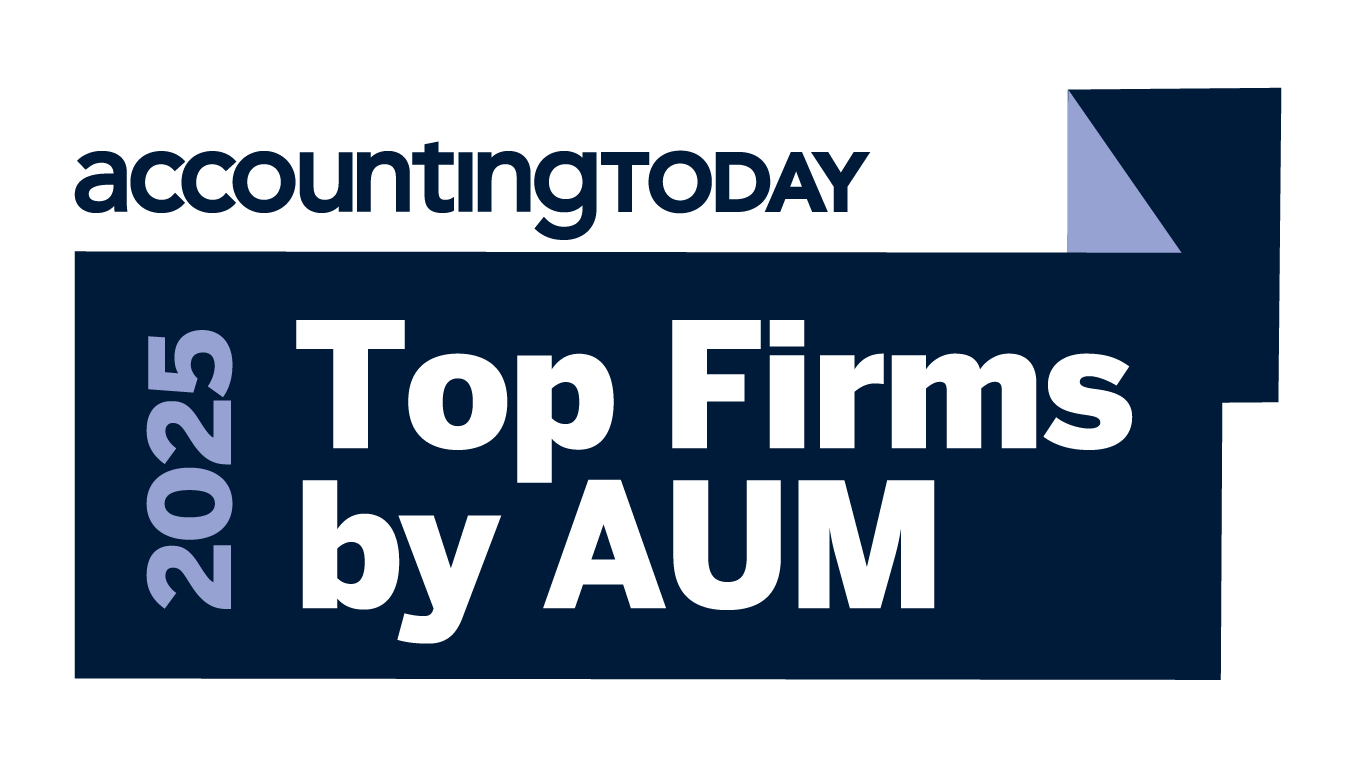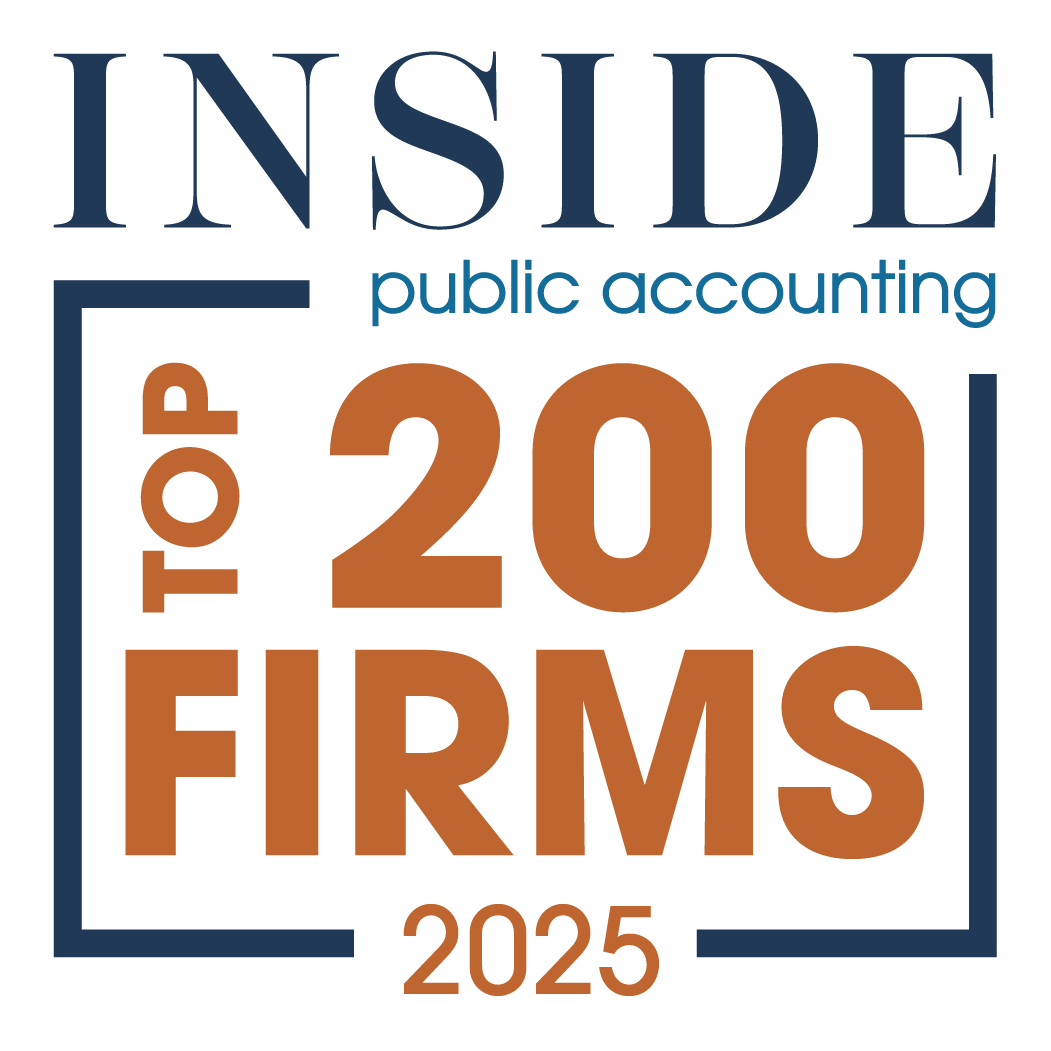Tax Law Impacts: One Big Beautiful Bill ActOverview of the New Tax Landscape Impacting Individuals & Businesses
8/12/2025 - By David Uslan, CPA
The One Big Beautiful Bill Act (OBBBA), signed into law by President Trump on July 4, 2025, makes permanent several provisions passed from the 2017 Tax Cuts and Jobs Act (TCJA) while also introducing several new provisions for individuals and businesses.
At Saltmarsh, we are continuing to review the new provisions and their impact on your tax strategy. This article highlights some of the most significant changes from our initial review of the OBBBA. As further guidance becomes available, we will continue to update this article with additional analysis and clarifications. For a list of acronyms, please refer to the glossary at the end.
Individual Impacts
Income Tax on Tips
For 2025 through 2028, OBBBA creates a deduction for up to $25,000 in tip income for those having MAGI up to $150,000 (S) / $300,000 (MFJ) per year. Deduction would be available without regard to whether a taxpayer has itemized deductions.
Deduction would be available only for voluntary tips in occupations that “traditionally and customarily” received tips before 2025 in a business that is not a specified service trade or business under Section 199A. The provision would also extend the FICA tip credit to cover certain beauty and barber services.
Prior Law: Tip income is taxed under Sec. 61 and reported to employers monthly under Sec. 6053.
Income Tax on Overtime
For 2025 through 2028, OBBBA creates a deduction for up to $12,500 (S) / $25,000 (MFJ) in overtime for those having MAGI up to $150,000 (S) / $300,000 (MFJ) per year. Deduction would be available without regard to whether a taxpayer has itemized deductions.
Prior Law: Overtime pay is subject to income and employment tax.
Deduction for Seniors (Social Security Benefits)
For 2025 through 2028, OBBBA creates a $6,000 personal exemption for taxpayers aged 65 and above. Exemptions would phase out with MAGI exceeding $150,000 (MFJ) / $75,000 (S/HOH/MFS).
Prior Law:
- 0% is taxed if combined income (AGI + nontaxable interest + half SS benefits) is below $32,000 (MFJ) / $25,000 (S).
- Up to 50% is taxed if the combined income is between $32,000 - $44,000 (MFJ) / $25,000 - $34,000 (S).
- Up to 85% is taxed if combined income exceeds $44,000 (MFJ) / $34,000 (S).
Auto Loan Interest Deduction
For 2025 through 2028, individuals can claim up to $10,000 of vehicle loan interest for loans incurred after December 31, 2024. Deduction would phase out when modified AGI exceeds $100,000 (S) / $200,000 (MFJ). The deduction only applies to new vehicles with a final assembly in the United States.
Prior Law: There is no current deduction for personal interest, which includes interest incurred on a personal vehicle loan.
Charitable Deductions
Beginning in 2026, taxpayers can deduct $1,000 (S) / $2,000 (MFJ) in addition to claiming a standard deduction. Individuals who do itemize will have their contribution deductions reduced by a floor of 0.5% of AGI.
Prior Law: Taxpayers must itemize their deductions to claim charitable contribution deductions. There also has not been a floor on charitable contribution deductions for itemizers in recent history.
SALT Deduction Cap
For 2025, the law sets a $40,000 SALT cap that would phase down to $10,000 for income exceeding $500,000 (MFJ/S) / $250,000 (MFS/HOH). The SALT deduction is reduced by 30% of every dollar of income exceeding these thresholds. From 2026 through 2029, these thresholds would increase by 1% each year until 2030. In 2030, the SALT cap will revert back to $10,000.
Prior Law: The SALT cap was set at $10,000.
Energy Credits for Individuals
Under OBBBA, there are several changes to the energy credits that will impact individuals:
- New clean vehicle credit terminated after September 30, 2025.
- Previously owned clean vehicle credit terminated after September 30, 2025.
- Energy-efficient home credit terminated after December 31, 2025.
- Residential clean energy credit terminated after December 31, 2025.
529 Accounts
Those saving for their or a child’s education can now use 529 funds for elementary, secondary, and post-secondary expenses. The new law also allows 529 funds to cover tuition, study materials, and exam fees for credentials.
Additionally, OBBBA permanently permits a tax-free transfer of 529 funds to an ABLE account that benefits the same 529 beneficiary or a member of the 529 beneficiary’s family.
Prior Law: 529 funds were reserved for higher education expenses. 529-to-ABLE transfers were set to expire after 2025.
Casualty Losses
OBBBA permanently allows personal casualty losses from both federal and state-declared disaster areas.
Prior Law: Limited to federally declared disaster areas.
High-Income Earner Itemized Deduction Cap (Pease Limitation)
OBBBA permanently repeals the Pease limitation on itemized deductions that the TCJA suspended through 2025, but creates a new cap. The new provision caps the benefit of an itemized deduction at 35% (even if a taxpayer’s highest marginal income tax rate exceeds 35%).
Prior Law: Pease limitations reduced deductions for high-income earners.
Home Mortgage Interest Deduction Limitation
OBBBA permanently reduces the mortgage debt limit for the home mortgage interest deduction to $750,000 ($375,000 for separate filers) but includes mortgage insurance premiums as deductible interest.
Prior Law: The $750,000 indebtedness was set to expire after 2025.
Standard Deductions
Beginning in 2025, OBBBA permanently increases the standard deduction to $31,500 (MFJ) / $15,750 (S/MFS) / $23,625 (HOH). After 2025, the standard deduction amounts will be adjusted for inflation each year.
Prior Law: Standard deductions were $30,000 (MFJ) / $15,000 (S/MFS) / $22,500 (HOH). Increased amounts expire after 2025.
Income Tax Brackets
OBBBA makes permanent the tax brackets of 10%, 12%, 22%, 24%, 32%, 35%, and 37%. Also provides the additional year of inflation adjustments for the 10% and 12% brackets.
Prior Law: Individual tax brackets of 10%, 12%, 22%, 24%, 32%, 35%, and 37% were set to expire after 2025.
Child Tax Credit
Beginning in 2025, CTC is permanently increased to $2,200/per qualifying child, indexing it to inflation thereafter. The refundable portion of the CTC is also made permanent.
Prior Law: Maximum CTC was $2,000/per qualifying child; up to $1,700/child could be refundable.
Qualified Small Business Stock
There are several key changes under OBBBA, all with inflation adjustments to increase the amount each year:
- Provides a 50% exclusion for QSBS stock held for three years, 75% exclusion for four years, and 100% exclusion for five years.
- Increases the current limit on the exclusion from $10 million to $15 million, indexed to inflation beginning in 2027.
- Increases the current limit on assets at the time of stock issuance from $50 million to $75 million, indexed to inflation beginning in 2027. Provisions are generally effective for stock issued after the date of enactment.
Prior Law: Taxpayers could exclude only 50% of the gain from the sale of QSBS held for more than five years.
Newborn Savings Accounts (Trump Accounts)
OBBBA creates a custodial IRA, called “Trump Accounts.” Parents who open a Trump account for their children born between January 1, 2025, and December 31, 2028, are eligible for this $1,000 tax credit. The annual contribution limit to a Trump account is $5,000, with annual inflation adjustments starting in 2027.
Prior Law: None.
Business Impacts
Accelerated Depreciation
Under OBBBA, property placed in service after January 19, 2025, and before 2030, will be able to take 100% bonus depreciation. Bonus depreciation will also be available for nonresidential real property that is considered “qualified production property” if construction of the property begins after January 19, 2025, and the property is placed in service by the end of 2030.
Section 179 is expanded to provide a deduction of up to $2.5 million for qualifying property placed into service during the tax year, available after December 31, 2024.
Prior Law: Bonus depreciation phased down to 40% in 2025, and 20% in 2026. Section 179 provided a maximum deduction of $1 million.
Qualified Business Income (QBI) Deductions
Under OBBBA, the deduction will remain at 20% and be made permanent while the phase-out amounts are increased from $50,000 (S) / $100,000 (MFJ) amounts to $75,000 (S) / $150,000 (MFJ). A new minimum $400 deduction is added for taxpayers with at least $1,000 of QBI.
Prior Law: After 2025, the 20% deduction for pass-through income would expire.
Research & Development (R&D) Expenditures
From January 1, 2025, full expenses for domestic R&D will be granted. Small business taxpayers will have the option to apply this change back to 2022. Starting in 2025, all other taxpayers will be allowed to accelerate any remaining amortization over one or two years.
Non-domestic research costs must still be capitalized and amortized over 15 years.
Prior Law: Beginning in 2022, taxpayers were required to capitalize and amortize domestic research costs over five years and non-domestic research costs over 15 years.
Entity State Tax Deductions
Under OBBBA, the PTET deduction remains intact.
Prior Law: With the individual SALT deduction capped at $10,000, many states offered PTET, which allowed a PTE to fully deduct state taxes at the entity level and, therefore, pass the benefit to its owners.
C Corporation Charitable Contribution Deductions
For tax years beginning after 2025, only contributions above a floor of 1% of taxable income are deductible up to a 10% limit.
Prior Law: Corporations were generally permitted to deduct up to 10% of taxable income without a floor.
Energy Credits for Businesses
Under OBBBA, there are several changes to the energy credits that will impact businesses:
- Energy efficient commercial building deduction terminated for construction beginning after June 30, 2026.
- Alternative fuel refueling property credit terminated for property acquired after June 30, 2026.
- New energy efficient home credit terminated for homes acquired after June 30, 2026.
- Commercial clean vehicle credit terminated for vehicles acquired after September 30, 2025.
- Clean electricity production credit terminated after December 31, 2027.
- Clean electricity investment credit terminated after December 31, 2027.
Business Interest Limitation
After December 31, 2024, the more favorable pre-2022 calculation limitation will be permanently restored. Business interest deductions will be limited to 30% of EBITDA.
Prior Law: Taxpayers could only deduct interest up to 30% of EBIT.
Excess Business Loss Limitations
Under OBBBA, the EBL limitation for noncorporate taxpayers is made permanent. An EBL can be carried forward as an NOL.
Prior Law: EBL limitation was set to expire after 2028.
Saltmarsh Insights on OBBBA
While this article highlights only a few of the most pressing impacts of the OBBBA, our advisors are actively monitoring legislative developments and evaluating their implications for both businesses and individuals. Beyond the provisions in this article, additional rules, limitations, and complexities are expected, along with new regulations as the law is implemented.
At Saltmarsh, we are here to help you navigate these evolving changes and understand how they may impact your tax strategy, with the goal of minimizing your tax burden and helping you adjust your approach with confidence.
If you have questions about the OBBBA and how it affects your planning, reach out to your trusted advisors at Saltmarsh or send us a message at OBBBA@saltmarshadvisors.com.
Glossary of Terms (A-Z):
ABLE - Achieving a Better Life Experience; AGI - Adjusted Gross Income; ATI - Adjustable Tax Income; CTC - Child Tax Credit; EBIT - Earnings Before Interest and Taxes; EBITDA - Earning Before Interest, Taxes and Amortization; EBL - Excess Business Loss; FICA - Federal Insurance Contributions Act; IRA - Individual Retirement Account; MAGI - Modified Adjusted Gross Income; NOL - Net Operating Losses; PIS - Program of Social Integration; PTE - Pass-Through Entity; PTET - Pass-through Entity Tax; QBI - Qualified Business Income; SALT - State and Local Tax; SS - Social Security; TCJA - Tax Cuts and Jobs Act. Tax Filing Status: MFJ - Married Filing Joint; MFS - Married Filing Separately; HOH - Head of Household; S - Single.
Related Posts
- What the Best Accounting Outsourcing Companies Provide that Bookkeepers Don't
- How an Outsourced Accounting Department Transforms Month-End Close
- Margins & Mindset: A Contractor's Guide to Smarter Financial Growth
- Meals & Entertainment Expenses
- How Accounts Payable Outsourcing Improves Accuracy, Speed, and Internal Controls
- The Hidden Benefits of Accounts Receivable Outsourcing for SMBs
- IRS Releases FAQ on Paper Check Phase-Out
- Construction Accounting Methods Explained: Cash, Accrual, and Percentage-of-Completion
- Stop the Profit Leaks: 6 Gut checks for Contractors
- A Practical Guide to Construction Job Costing for Contractors
- WIP Construction Accounting: How to Read and Use a Work-in-Progress Report
- Saltmarsh Leader Suzanne Bach Joins ABC Florida Gulf Coast Board
- What to Know Before Year-End
- Job Schedules 101: A Smarter Way to Strengthen Construction Finances
- Tax Law Impacts: One Big Beautiful Bill Act
- A Quick Guide to Percent of Completion for Long-Term Construction Contracts
- Four Metrics Your Construction Company Should Start Tracking Today
- WEBINAR: Horror Stories in Employee Safety/Risk Management
- White Paper: Manufacturing Outlook, Leveraging Technology Today
- Webinar Materials: The Cost of Attracting & Retaining Talent in Today's Market
- White Paper: Manufacturing Outlook, Lean Thinking to Reduce Costs
- Biden's Infrastructure Plan: What Is Construction's Opportunity?
- Construction Tax Team Featured in Florida Transportation Builders Association's Magazine
- Five Metrics Your Construction Company Should Start Tracking Today
- GovCon Updates of the Week Part 3
- View All Articles






